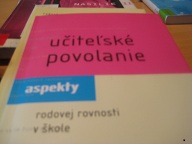Earlier this week, while on a visit to Slovakia, I was able to visit ASPEKT, a feminist educational and publishing organization based in the capital, Bratislavia, Slovakia (the southern part of what was known as the former Czechoslovakia). ASPEKT was founded in 1993 following the Velvet Revolution in the former Czechoslovakia, which ended the communist regime of the previous 40 years and led to the split of the country into two – the Czech Republic and Slovakia – and a social and political transformation where the unthinkable became possible. ASPEKT was the leading pioneering feminist organization in Slovakia at this time, supported by sympathetic funding agencies abroad from countries such as the USA, Germany and Switzerland. It aimed to take the discourse on equality and democracy seriously and apply it to the lived realities of girls and women in Slovakia. Between 1993 and 2004, it has published 21 issues of the feminist cultural journal ASPEKT (in A4 format, ranging from 92 to 334 pages in length) and introduced new topics to Slovak and Czech feminist debates including translations of key feminist texts from various women’s movements, and women’s and gender studies. The journal’s editors also initiated original writing and analysis, which both metaphorically and literally, helped develop a vocabulary of emerging feminists and feminisms in Slovakia. Articles can be accessed electronically via the Central and Eastern European Online Library.
ASPEKT has also produced since 1996 over 96 fiction and non-fiction books including Slovak women fiction authors (e.g. Jaroslava  Blažková, Etela Farkašová, Jana Juráňová, Uršuľa Kovalyk, Irena Brežná) and numerous translations (e.g. Nicole Müller, Elfriede Jelinek, Margaret Atwood, Olga Tokarczuk, Virginia Woolf). Other publications include work on feminist theory (e.g. Carole Pateman, Judith Butler, Elisabeth Badinter, Karen Horney), on the prevention of child sexual abuse and violence against women, and feminist or gender-sensitive perspectives on recent political issues (political participation, violence against women, discrimination on the basis of sexual orientation etc.). Among the most popular publications are those focusing on gender sensitive education and gender stereotypes.
Blažková, Etela Farkašová, Jana Juráňová, Uršuľa Kovalyk, Irena Brežná) and numerous translations (e.g. Nicole Müller, Elfriede Jelinek, Margaret Atwood, Olga Tokarczuk, Virginia Woolf). Other publications include work on feminist theory (e.g. Carole Pateman, Judith Butler, Elisabeth Badinter, Karen Horney), on the prevention of child sexual abuse and violence against women, and feminist or gender-sensitive perspectives on recent political issues (political participation, violence against women, discrimination on the basis of sexual orientation etc.). Among the most popular publications are those focusing on gender sensitive education and gender stereotypes.
On my visit it was stressed that with the onset of recessionary times, and the drying up of funds from abroad, Slovakian feminists are feeling increasingly disappointed (particular in the national government’s failure to recognize the importance of gender issues), isolated, and exhausted. One form of support that they would welcome from GEA members is some kind of feedback on recent publications, some of which have been translated into English and are available on ASPEKT’s website. If you can read Slovak so much the better
Gaby Weiner
